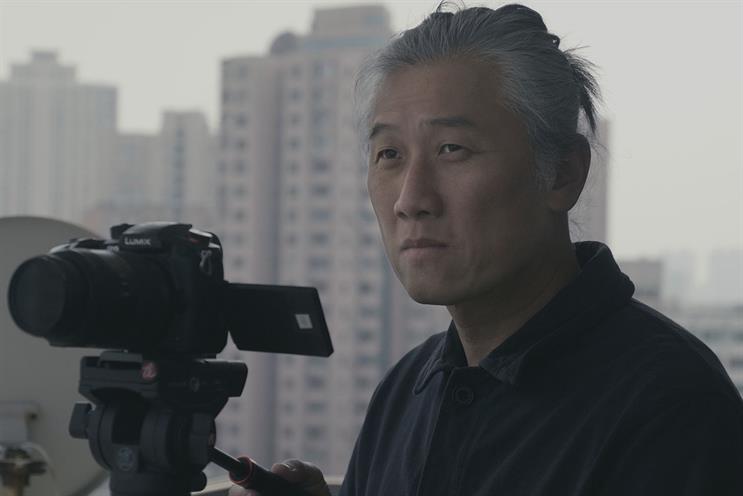In January, a deadly new coronavirus was spreading quickly through central China. Soon, British advertising creative and filmmaker Yu Kung (pictured, top) and his wife, Crystal Liu, found themselves losing their income and locked down in their apartment block in Shanghai before the virus reached the rest of the world.
Yu and Crystal decided to use their creative background in advertising to capture the sudden confinement and impact of the epidemic on the lives of their neighbours. Enlisting the help of Wonderhood’s Unscripted Studio, they created a one-hour documentary called Covid: Our Lockdown in Shanghai. The unique process of making this film offers lessons to global productions in both broadcast and advertising.
Just a few months ago, the prospect of making a documentary like this would have been unthinkable. It was filmed in lockdown Shanghai, edited in lockdown London and made for a channel in lockdown Washington, DC. Then throw into the mix the entire production team working from home, editors juggling childcare with extremely long hours, the Chinese/English language barrier, the necessity of directing master interviews via video calls with contributors more than 5,000 miles away, and the logistical and time pressures that come with a fast-turnaround schedule. The subject of the documentary is about lockdown and that’s how it was made as well.
In March, Jonathan Hill, creative and business partner at Campfire Productions, contacted Wonderhood with Yu and Crystal’s taster tape. The tape had captured the residents of a block in Shanghai during the city’s lockdown. At that time, Samantha Anstiss, founding partner and chief creative officer at Unscripted Studio, remembers "a heightened sense of tension" as everyone in the UK was preparing to go into their own lockdown and Wonderhood, which was in production with documentaries for the BBC, Channel 4 and Channel 5, was readjusting its productions to work remotely. When Sam saw the tape, she was "moved by its beauty and the curious situation Yu and Crystal had found themselves in".
Sam pitched the documentary to David Royle, chief executive of Smithsonian Channel in the US, who saw its potential and commissioned Wonderhood and Campfire to co-produce a fast-turnaround one-hour film across three time zones.
Aside from the obvious challenges, Rebecca Templar, executive producer at Unscripted Studio, describes the production process as being "deeply moving… Cutting and crafting scenes portraying the physical reunion of family members in Shanghai whilst we are still separated from our own loved ones has been particularly poignant. It’s a process that will stay with us for the rest of our lives."
Yu believes technology played a big part in helping the teams solve technical issues, but the biggest learning is less technological. It is more about what the human spirit can achieve.
"It’s so easy to give up or get super-stressed with your colleagues or the circumstances. But when everyone is passionate and working towards the same goal, it’s hard to budge that fighting spirit to get things done, no matter what," he says.
Our Unscripted Studio shares top 10 tips on pulling off a fast-turnaround global production:
- Embrace the magic of video call apps and related wizardry
- Install mandatory multiple world clocks on everyone’s phones
- Create a graph identifying the two-hour window in which it’s possible to speak to people on three (or four) continents at the same time
- Find companies with high-speed internet capacity in remote locations for transfer of rushes
- Make friends with the partners of colleagues to ease midnight viewings and script collaboration
- Copy everyone in on everything in a vague attempt to prevent things slipping through the net
- Accept the fact that the term "duvet day" now means recording endless guide comm on an iPhone beneath a duvet (ideally summer tog)
- Insist on daily walks or runs
- Never underestimate the power of dark chocolate during 2am scripting sessions
- Be sure to laugh in the face of adversity
Aidan McClure is chief creative officer at Wonderhood Studios


